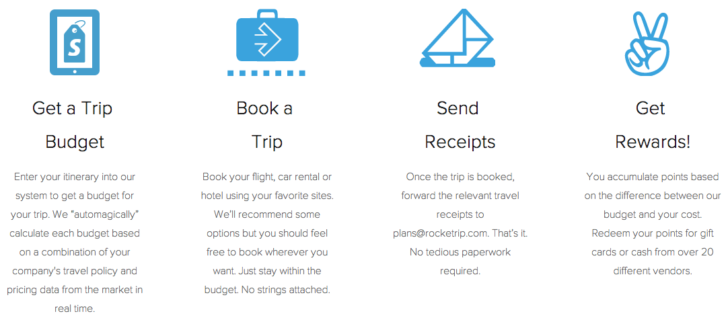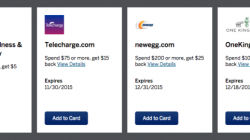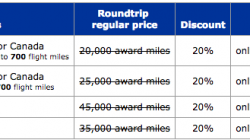Before my trip to New York last month, I spent some time poking around on the interwebs looking for news of any travel startups in the area. I came across a small company called Rocketrip and — with no clue as to what they actually did — set up a meeting with its founder, Dan Ruch. But I left New York thinking that the half-hour I spent with Dan was probably the most interesting thing I did all weekend.
Rocketrip (not to be confused with Rocketmiles) is concerned with business travel. It’s not something I talk about very often on this blog even though I know many of you are business travelers. And the reason is that while leisure travelers are willing to devote hours to researching the best deal, they can be incredibly lazy when it comes to business travel.
Just the other day I saw one of my coworkers book a business trip to Europe the night before. He didn’t search alternate airlines or even alternate routes on his preferred carrier. He had no idea if he could have saved money. He just picked the first option he saw and booked it. (Since he was flying United and I knew it had to be at least W or higher, I was a nice guy and gave him a GPU.) The price wasn’t unreasonable for a last-minute economy class fare, and he had other justifications, but it demonstrates how difficult it can be to encourage employees to adopt basic strategies like advanced purchase and comparison shopping when it’s not their money.
Dan gave me examples of how some companies incentivize their employees to use company funds more wisely. One large employer assigns a budget for each trip and lets the employee build up a credit if he or she comes in under budget. The credit can be used to go over budget on future trips, like saving $100 on each domestic trip and splurging on business class to Asia. But if all employees splurge at once, it can still create havoc for accounting purposes. There’s also the problem that bosses don’t usually know what a trip “should” cost.
From the press release:
Rocketrip’s secret sauce is a first of its kind algorithm that integrates a company’s travel policy with real-time trip pricing and inventory availability to create a Smart Budget for each trip. Once employees have their personalized Smart Budget, they have the freedom to book airfare, hotels, and rental cars using their favorite travel sites.
As Dan described it, you can book whatever flights or hotels you want. Just forward the receipts to Rocketrip, and their software will deduct the amount from your remaining Smart Budget. Have some Avios points? Use them for that business trip from Boston to New York, and sleep on a friend’s couch. Your total cost could be be $2.50 instead of the $1,000 budgeted. And those savings get split between you and your employer.
In a more realistic scenario, you might use some travel hacking skills to search for a cheap flight on ITA Matrix, book it through a cash-back portal rather than the company travel agent, and use a site like PointsHound to book your hotel and earn some extra miles on top.

That’s nice, but what I thought was really cool was Rocketrip’s solution to the other problem: How to manage all those savings? The employer gets to keep its cut. Rocketrip takes over management of the employee’s cut. This shifts the liability off the employer’s balance sheet and lets Rocketrip issue rewards currency it calls Rocketrip Points. These points can then be redeemed for gift cards, including American Express but also for retailers like Amazon and Best Buy.
So the company saves money. You get some extra cash in your pocket. And where does this leave Rocketrip? Oh, yeah, remember they’re the ones managing your cut. That pool of cash is what insurance companies call “float.” It’s how Berkshire Hathaway can afford to buy so many other companies — its Geico insurance unit collects premiums and then invests the money to produce income that it uses to pay claims. It’s a really clever idea and lets Rocketrip diversify its income stream, offering employees the freedom to book their own travel rather than force them to use dedicated travel agents and collect a fee.
Again, I realize this may be of limited interest to most of you, but it was certainly exciting to me. If you operate a medium-sized business, they’re looking to expand the existing beta and are looking for those with 50-750 employees. Check out the site or email Rocketrip.


